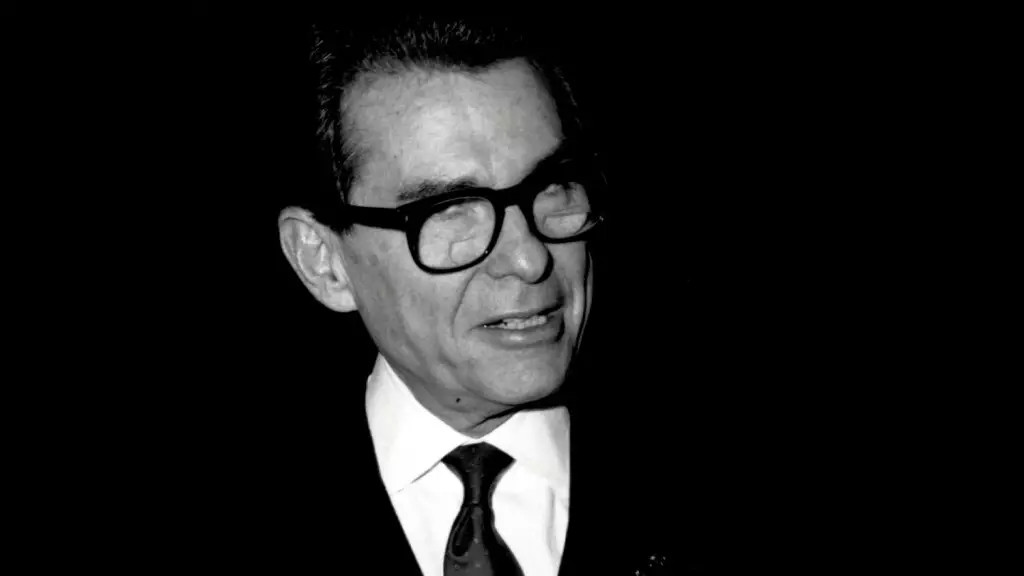The film industry stands as a testament to collective dreams, creativity, and the stories we share. Yet, it also reflects the passage of time, invisible but ever-present. Richard Kahn, a prominent figure of this world, recently passed away at the impressive age of 95, leaving behind not just a legacy but a myriad of questions about the evolution and responsibility of our cinematic culture. In an era where the accessibility of filmmaking has never been greater, Kahn’s lifetime of contributions to the Academy of Motion Picture Arts and Sciences (AMPAS) prompts a reflection on what it means to be a true leader in the film community.
Kahn’s journey within the Academy, which began in 1964, spanned several pivotal moments in cinematic history. His service as the 26th president of the Academy and numerous other roles, such as governor and vice president, illustrate an unwavering dedication to enhancing the organization’s influence and relevance in the rapidly evolving entertainment landscape. Statements from the Academy’s leaders emphasize his role in shaping enduring traditions, but this prompts the question: Are those traditions still relevant, and do they serve the current and future state of filmmaking?
Innovation Amidst Tradition
Kahn was involved in launching several initiatives grappling with these very questions, including global member receptions and the first Nominees Luncheon. This blend of innovation and tradition is a delicate act, one that anyone at the helm of a revered institution must navigate. In an increasingly competitive environment, marked by streaming platforms and a democratized approach to filmmaking, it is imperative for the Academy to reassess what these “traditions” mean today. Kahn may have established them; his successors now bear the responsibility to evolve them.
His career, enriched by marketing positions at Columbia Pictures and MGM, saw him work on iconic films that have become pillars in film history. The films he touched—“Lawrence of Arabia,” “Funny Girl,” and “Network”—were not merely successful in their time; they sparked dialogues still reverberating today. This underscores the importance of a forward-thinking view in a world obsessed with legacy. Kahn’s ability to marry traditional promotional efforts with innovative marketing strategies is perhaps a lesson for the industry now, which often seems bogged down by its history rather than inspired by it.
The Responsibilities of Legacy-Building
At the age of 95, Kahn witnessed the transformative shifts that shaped the film industry. From 1964 until his passing, he saw the rise of the blockbuster, the advent of digital cinema, and social media’s disruptive power over traditional marketing. His strategic foresight allowed him to adapt to changing landscapes, and his passing signifies not just the loss of a personal legacy but a generational shift in film marketing philosophies.
Kahn’s contributions ought to ignite conversations about the Academy’s future direction—questions regarding inclusivity, representation, and the broader responsibility of storytelling in an age defined by divisive narratives, echo with an undeniable urgency. The voices of tomorrow’s filmmakers need to be collaged with lessons from yesterday’s leaders. As we remember Kahn, grappling with his legacy will be crucial to redefining the Academy’s role in championing those voices.
Memory and Mourning
Richard Kahn’s family shared poignant thoughts, describing him as a kind soul with a “wry sense of humor.” A figure like Kahn would likely advocate for a student today as passionately as he would promote a blockbuster film. His spirit, evident in both personal and professional arenas, elucidates how memory and mourning intermingle within the narrative of loss. It is through this lens that his departure makes ripples not just in the industry but in the hearts of those he touched directly.
Amid grief, the greater context of Kahn’s impact should inspire a renewed commitment to cinema that speaks to the complexities of modern life. Opportunities for reflection exist not only in mournful remembrance but also in forward-focused conversations that can reshape the narrative of tomorrow’s cinema. Whether we examine the Academy’s relevancy or the integrity of its traditions, Kahn’s essence will push us toward that inquiry—an essential part of honoring his enduring legacy in the world of film.
As the industry forges ahead, Richard Kahn’s contributions serve as reminders that the past remains an essential guide, steering the trajectory of any forward-thinking conversation about the future of cinema.


Leave a Reply